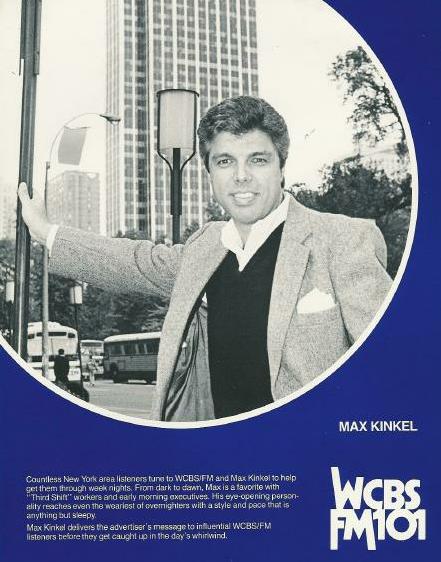
A Radio Legend’s Journey
In the golden age of Los Angeles radio, a voice could be more than just a presence—it could define an era. For over three decades, Thomas Wayne Rorabacher, known professionally as China Smith, was one of those voices. His smooth delivery, razor-sharp instincts, and ability to adapt to every format made him a mainstay on Southern California’s airwaves. From rock to jazz, Top 40 to urban contemporary, Smith’s career was a masterclass in versatility and connection. But behind the microphone was a man whose life and career were as dynamic as the music he played.
Early Life: Roots in Grand Rapids
Born in Grand Rapids, Michigan, in 1943, Thomas Wayne Rorabacher grew up in a working-class family that valued hard work and creativity. His fascination with radio began early. As a child, he would sit by the family radio for hours, captivated by the voices that seemed larger than life. By his teenage years, Rorabacher knew he wanted to be one of those voices.
His first step into broadcasting came at WGRD in Grand Rapids, where he started as a production assistant before moving on-air. Even in these early years, he displayed a natural talent for connecting with listeners. His voice was warm and engaging, his delivery confident yet approachable. Colleagues at WGRD recall his meticulous attention to detail—whether it was crafting the perfect segue between songs or ensuring his ad reads had just the right tone.
But Rorabacher wasn’t content to stay local. He had bigger ambitions and knew that to make it in radio’s upper echelons, he needed to move west.
Becoming China Smith
The name “China Smith” wasn’t one Rorabacher chose—it was given to him by Gary Allyn, the program director at KCBQ in San Diego. Allyn thought the name had an air of mystery and intrigue, inspired by a 1950s television adventure series of the same name. Though initially hesitant, Rorabacher embraced the moniker when he joined KCBQ in October 1970.
At KCBQ, Smith began building the on-air persona that would make him famous: smooth yet dynamic, authoritative yet relatable. His ability to balance professionalism with personality quickly made him a standout in San Diego’s competitive radio market. But KCBQ was just the beginning.
Taking Over Los Angeles
In 1971, China Smith made the leap to Los Angeles—a city where radio wasn’t just entertainment; it was culture. Over the next three decades, Smith became synonymous with LA radio, working at nearly every major station and mastering nearly every format.
KDAY: Rocking the AM Dial
Smith’s first stop in LA was KDAY-AM, where he brought his signature style to album rock programming. At a time when AM stations were beginning to lose ground to FM’s superior sound quality, Smith helped keep KDAY relevant by curating playlists that balanced mainstream hits with deeper cuts.
Listeners remember his ability to make even lesser-known tracks feel essential. “China had this way of introducing you to new music without making it feel like homework,” recalls longtime fan Michael Torres. “He made you trust his taste.”
KRLA and KROQ: Adapting to Change
At KRLA (1110 AM), Smith navigated one of the most significant transitions in LA radio history as the station shifted from Top 40 hits to oldies programming. While some DJs struggled with the change, Smith thrived, using his encyclopedic knowledge of music history to connect with both longtime listeners and younger fans discovering classics for the first time.
Later at KROQ-AM—before it became synonymous with alternative rock—Smith embraced an edgier sound that pushed boundaries while still maintaining broad appeal.
KMET and KLOS: The Pinnacle of Rock Radio
Smith’s tenure at KMET (94.7 FM) during its heyday as “The Mighty Met” solidified his reputation as one of LA’s premier rock DJs. KMET was more than just a station—it was a cultural institution for Southern California’s counterculture movement—and Smith was at its center.
At KMET, he championed album-oriented rock (AOR), giving airtime not just to hits but also to deep cuts from artists like Pink Floyd and Fleetwood Mac. His ability to blend storytelling with music made his shows feel intimate despite reaching millions of listeners.
When KMET eventually gave way to KLOS (95.5 FM), Smith transitioned seamlessly into its lineup, further cementing his status as a rock radio legend.
Exploring New Sounds: KWST, KMGG, and KUTE
Smith wasn’t afraid to take risks or explore new formats. At KWST (Top 40) and KMGG (Magic 106), he experimented with softer adult contemporary playlists while maintaining his trademark charisma.
His time at KUTE (102 FM) marked another shift—this time into urban contemporary programming. Here, Smith connected with LA’s diverse audience by showcasing R&B hits alongside emerging hip-hop tracks.
The Wave: Reinventing Smooth Jazz
In 1991, Smith joined KTWV (94.7 FM), better known as “The Wave.” By this point in his career, many DJs might have settled into familiar routines—but not Smith. At The Wave, he embraced smooth jazz and world music influences with enthusiasm.
His syndicated program “Fusion 40,” which aired across four continents for five years, was particularly groundbreaking. Combining jazz/NAC (New Adult Contemporary) with World Beat sounds, it showcased Smith’s willingness to innovate even late into his career.
KCBS-FM: A Final Encore
In his final years on air, Smith returned to KCBS-FM (Arrow 93), handling weekend shifts and vacation fill-ins. Even after decades behind the mic, his voice retained its warmth and authority—a testament to both his talent and professionalism.
Listener Loyalty: A Personal Connection
For many Angelenos who grew up listening to China Smith, his voice wasn’t just part of their daily routine—it was part of their lives. Fans recall calling into his shows for song requests or contests and feeling like they were talking to an old friend rather than a distant celebrity.
“China had this way of making you feel like you were part of something special,” says Maria Lopez, who first discovered him on KMET as a teenager in the late ’70s. “He wasn’t just playing music; he was creating memories.”
Industry Reflections: A Peerless Professional
Fellow broadcasters speak highly of Smith’s adaptability and dedication to his craft. “China could do it all,” says Don Barrett of LARadio.com. “He could move seamlessly between formats without losing what made him unique.”
Smith’s influence extended beyond local markets through syndicated shows like “Fusion 40,” which introduced global audiences to his innovative programming style.
Personal Life: Behind the Microphone
Off-air, Thomas Wayne Rorabacher was known for his warmth and generosity—a family man who cherished time spent with loved ones despite his demanding career.
Raised by parents who instilled strong values in him from an early age, those close recall how deeply rooted sense-of-humor shaped interactions both professionally & personally.
After retiring full-time early 2000s ; continued mentoring young broadcasters while occasionally guest appearing .
Legacy Preserved
Smith passed away on August 22nd,2005, following a sudden heart attack, leaving behind a legacy that will inspire future generations. Platforms like Aircheck Radio ensure work remains accessible, preserving golden era moments.
As we reflect upon contributions spanning decades, it is evident how much impact left upon the industry, shaping countless careers.
Written by: studio
ARROW 93 CHINA SMITH GRAND RAPIDS KCBQ SAN DIEGO
Similar posts
Recent Comments
No comments to show.-

Retro Rewind
With Kenneth Dell
For every Show page the timetable is auomatically generated from the schedule, and you can set automatic carousels of Podcasts, Articles and Charts by simply choosing a category. Curabitur id lacus felis. Sed justo mauris, auctor eget tellus nec, pellentesque varius mauris. Sed eu congue nulla, et tincidunt justo. Aliquam semper faucibus odio id varius. Suspendisse varius laoreet sodales.
close Top popular
podcast episodes
speakers

- studio@aircheckradio.us
- 206-735-3904
-
Aircheck Radio
PO Box 374
Preston, WA 98050
© Copyright 2025 Aircheck Radio - is a proud listener supported 501(c)(3) nonprofit organization
















